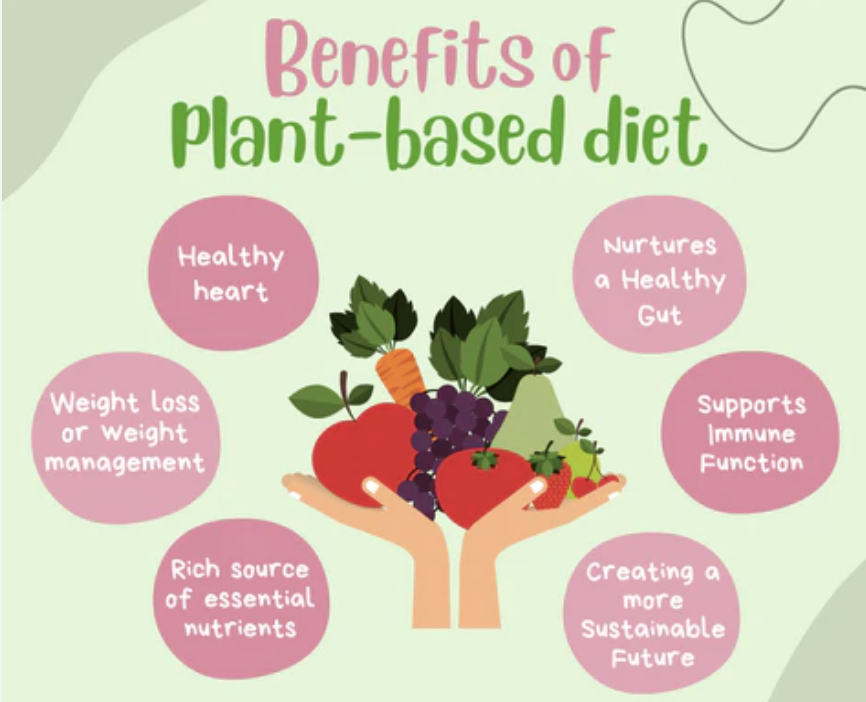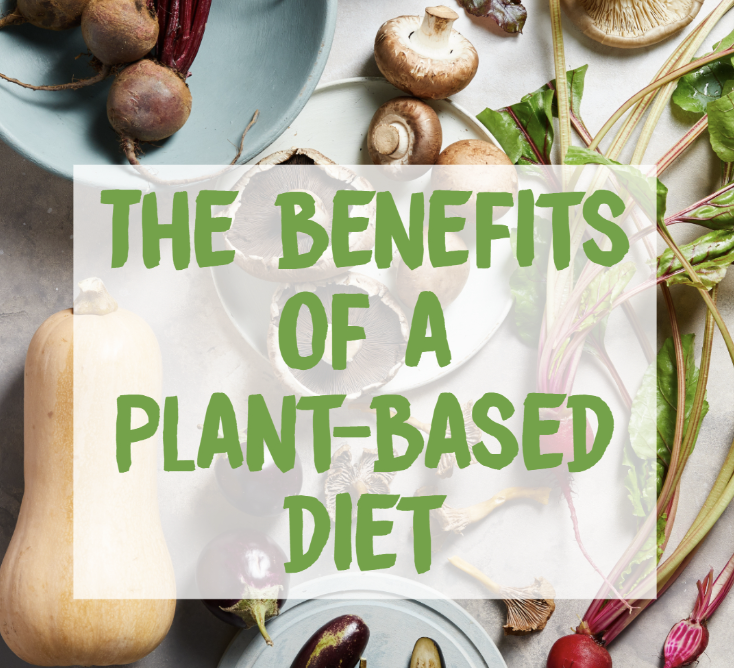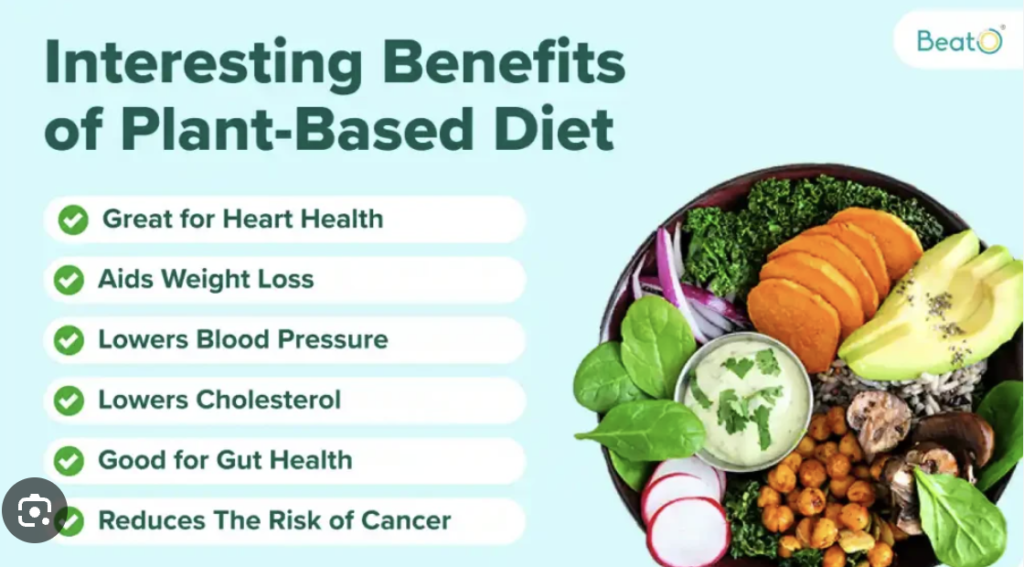The Benefits of a Plant-Based Diet: Nourishing Your Body and the Planet
Exploring the Health, Environmental, and Ethical Advantages of a Plant-Based Lifestyle

Adopting a plant-based diet is more than just a trend; it’s a lifestyle choice that offers numerous benefits for both individuals and the environment. From improving health to reducing environmental impact, a plant-based diet can be a powerful way to enhance well-being and contribute to a more sustainable world. This blog post explores the diverse advantages of a plant-based diet and how it can positively impact your life and the planet.

Improved Health and Well-Being
1. **Enhanced Nutrient Intake**:
– Plant-based diets are rich in essential nutrients such as vitamins, minerals, and antioxidants. Foods like fruits, vegetables, legumes, nuts, and seeds provide a wealth of nutrients that support overall health and well-being. These foods are also high in fiber, which aids in digestion and helps maintain a healthy weight.
2. **Lower Risk of Chronic Diseases**:
– Research indicates that plant-based diets can reduce the risk of chronic diseases such as heart disease, type 2 diabetes, and certain cancers. A diet high in fruits, vegetables, and whole grains is associated with lower blood pressure, improved cholesterol levels, and better blood sugar control.
3. **Weight Management**:
– Plant-based diets are often lower in calories and fat compared to diets high in animal products. The high fiber content of plant-based foods helps promote satiety and can assist in weight management. Many people find that adopting a plant-based diet helps them maintain a healthy weight more easily.
4. **Improved Digestive Health**:
– The fiber found in plant-based foods promotes healthy digestion and regular bowel movements. High-fiber foods help prevent constipation and support a healthy gut microbiome, which plays a crucial role in overall health.

Environmental Benefits
1. **Reduced Carbon Footprint**:
– Plant-based diets have a lower carbon footprint compared to diets that include animal products. Producing plant-based foods generally requires fewer resources and generates less greenhouse gas emissions. By choosing plant-based options, you contribute to reducing your environmental impact.
2. **Conservation of Resources**:
– Growing plants for food typically requires less land, water, and energy compared to raising animals for meat. By shifting to a plant-based diet, you help conserve natural resources and reduce the strain on the environment.
3. **Biodiversity Preservation**:
– Large-scale animal agriculture can lead to habitat destruction and loss of biodiversity. A plant-based diet supports biodiversity by reducing the demand for land used for grazing and feed production, allowing ecosystems to thrive.

Ethical Considerations
1. **Animal Welfare**:
– A plant-based diet aligns with ethical principles by reducing the demand for animal products and supporting the welfare of animals. By choosing plant-based foods, you contribute to minimizing animal suffering and promoting more humane treatment of animals.
2. **Sustainable Food Systems**:
– Supporting plant-based food systems contributes to the development of sustainable and ethical agriculture practices. Many plant-based options are produced using methods that prioritize environmental stewardship and animal welfare.

Practical Tips for Transitioning
1. **Start Slowly**:
– Transitioning to a plant-based diet doesn’t have to be all-or-nothing. Start by incorporating more plant-based meals into your routine and gradually reducing your consumption of animal products.
2. **Explore New Foods**:
– Experiment with a variety of plant-based foods to discover new flavors and textures. Try incorporating legumes, grains, nuts, seeds, and plant-based alternatives into your meals.
3. **Plan Balanced Meals**:
– Ensure your plant-based diet is balanced by including a variety of nutrient-dense foods. Pay attention to protein sources (such as beans, lentils, and tofu), and consider supplementing with vitamin B12 if necessary.
4. **Seek Support and Resources**:
– Utilize resources such as cookbooks, online forums, and nutrition guides to support your transition. Connecting with others who follow a plant-based diet can provide valuable tips and encouragement.
 Conclusion
Conclusion
The benefits of a plant-based diet extend beyond personal health to encompass environmental sustainability and ethical considerations. By adopting a plant-based lifestyle, you can improve your well-being, contribute to a healthier planet, and support more humane practices. Whether you’re making a gradual transition or embracing a fully plant-based diet, the positive impacts on your health and the environment are significant and far-reaching.